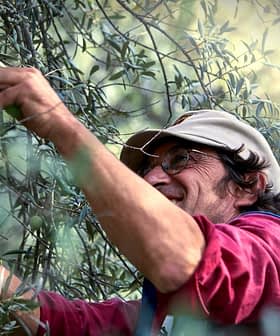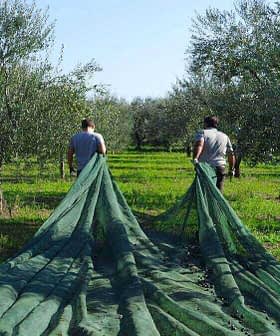Tuscan Landfill Gives Away Olive Trees to Compensate for Carbon Emissions
An Italian public company has enacted a massive project of planting olive trees to compensate for its carbon emissions and foster local extra virgin olive oil production.
The waste-management, landfill and biofuel company, Scapigliato Srl, has announced that thousands of olive trees will be donated to farmers, associations, companies and local institutions in 56 municipalities in the Rosignano Marittimo region of west-central Tuscany.
To be selected as recipients of the trees, the interested parties must fill out a form and provide details of their request. They can ask for a minimum of 50 trees to a maximum of 5,000. All the trees will come from nurseries that can provide certification and identification.
“The initiative aims at identifying the farms, agricultural cooperatives, networks of food producers, farmland owners,” a note reported.
In the note, the company explained that they would include multiple olive tree cultivars, including Frantoio, Leccino, Maurino, Moraiolo, Pendolino and Leccio del Corno. These cultivars are renowned olive varieties widely spread in Tuscany and northern-central Italy.
Once fully deployed, project promoters and Tuscany regional authorities expect that approximately 245,000 olive trees will provide at least 700 hectares of new olive orchards, with an average density of 350 trees per hectare.
The waste-management company has also specified that non-profit organizations may participate in the project if they manage or own appropriately-sized areas.
In addition to the olive trees, the Scapigliato Trees Project will support planting 30 hectares of green and forest areas. They plan on adding more to that number depending on partnership opportunities with neighboring municipalities and communities.
The project will cost around €3 million and is expected to compensate for 1,195,000 tons of carbon dioxide emissions. According to the company, that number will counter all emissions they have produced since starting operations in 1982.
While introducing the project, Scapigliato Srl added that for the next decade, it would invest an additional €2 million to further improve the project by planting 8,700 trees, 36 thousand shrubs and 630,000 square meters of grassland. Such investment should compensate for 215,000 tons of carbon dioxide emissions.
The company’s goal is to complete the project before 2030, which is the year the landfill it manages will be formally closed. At that time, only its biogas collection facility and other facilities will remain to transform and manage organic local urban waste.









